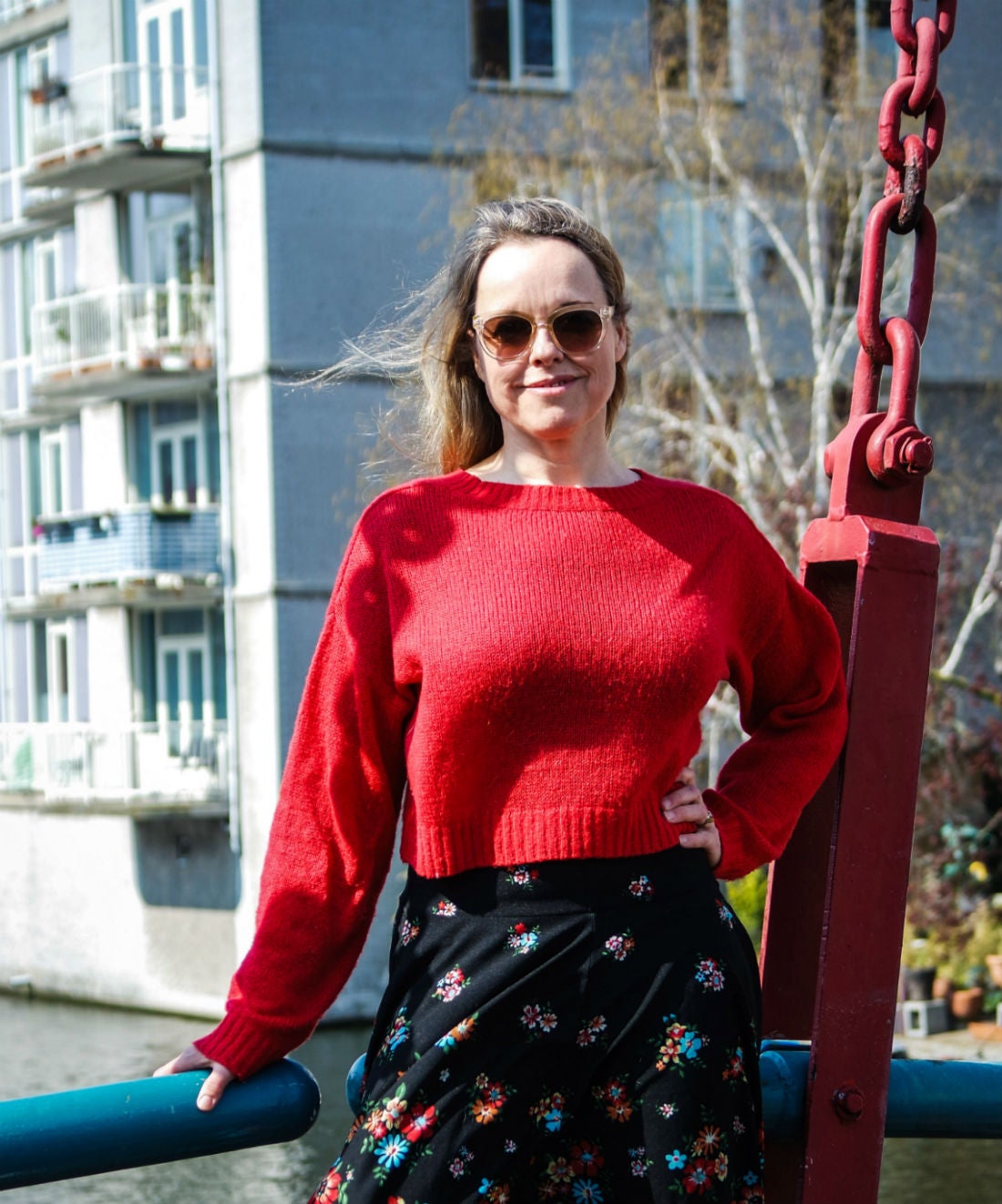Mariëtte Baarda (51) studied Humanities at VU Amsterdam, but came to a sudden halt due to increasingly severe migraines. In her book, Kinderen waaien om, she describes how the intense pain can force her to spend hours in a warm bath, but also how the illness charted the course of her life and career. "I sought a cure and found writing."
Mariëtte still has to be careful. We agreed to meet in a restaurant, where she prefers staying out of the sun and doesn’t want it to be too noisy. Outside, she always wears sunglasses and a hat. “I have to protect myself, or run the risk of having to write off several days.”
How are you now?
“The nature of the migraines is now changing. Sometimes, the most severe attacks will occur once every two months, and at other times they’ll return twice a week. It probably has something to do with menopause.”
In your book, you describe your search for a solution in traditional and alternative medicine. Are you still searching?
“I’ve tried just about everything in the alternative circuit, even if I wasn’t sure about whether it would work. Once, a Sufi performed a ritual on me, aimed at driving out the djinn that he believed was causing the migraines. Part of me thought: ‘What am I doing? I have an academic background. Mariëtte, you’ve gone mad!’ Still, I wanted to try. It’s a conflict that you never quite seem to escape, and you try everything you can out of pure desperation. I’ve now toned it down, but if someone approaches me with a miracle drug, I’d still want to try it.”
“I’ve since come to accept life as it is. No husband, no family and no career.”
Has the illness changed you?
“My life has taken a completely different course than expected and many of the hopes and dreams I had for my life never came to fruition. I’ve since come to accept life as it is. No husband, no family and no career.” I am surrounded by ambitious people who work hard and achieve impressive results. I still find it difficult to compare myself to them. I would prefer to be a lot more productive than I am, but this is just the way it is.”

“Still, I try to take life one day at a time and stop worrying as much. There’s simply nothing I can do about it. The only thing I’m scared of is that all those severe attacks have left scar tissue in my brain, which increases my chances of having a stroke. It’s something I’m very actively aware of. I always sleep with a phone on my pillow and practice blind emergency calls every night before I go to bed. All I can do is hope that it helps me when it really matters.”
“I practice blind emergency calls every night before I go to bed.”
What do your days look like now?
“I do longish interviews for Onze Taal, which gives me the feeling that I still have something to do in society, even though I’m on unemployment benefits. I have more time for those interviews than your average journalist. My preparations are very thorough: I go the the exhibitions and shows of the artist I’m interviewing, read all their work and really try to put myself in their shoes. I’m extremely prepared. Artists often feel very honoured by my approach. I’ve also started writing my second book. This one won’t be about migraine, but I’m not quite ready to divulge what it will be about.”
What did the book give you?
“It confirmed that I had the ability to achieve something and that I actually managed to do so. I had always felt a little ashamed, because I knew that I had quite some potential when I was younger. Being promising starts to become a burden after you’re 25, and if you haven’t done anything worthy of note after your 30th, people will start to wonder whether anything will ever happen. When you reach 40, it starts getting a little pathetic. The book is material evidence that I am part of the real world, but the countless grateful reactions from patients and their family or friends have also meant a great deal.
“If you’re not careful, your entire life will start to revolve around that one problem.”
How did you manage to study with all those violent attacks?
“I think I suffered from migraines about three times a month when I was a student. Back then, people wouldn’t necessarily notice anything. And if people didn’t notice, I preferred keeping it to myself and pretending it didn’t exist. It worked, actually. Recently, someone in my year sent me a letter telling me that she’d never known how bad it was.”
Is there any advice you’d like to give to other people suffering from a chronic illness?
“My advice to people would be: please try to focus on what isgoing well. If you’re not careful, your entire life will start to revolve around that one problem. When you’re young, you tend to think: ‘I’ll just solve this now and life will begin afterwards.’ At some point, though, you’ll find that you’re 50 years old and still stuck in the same loop. In today’s society, we often have the idea that if you really want something, you can make it happen. That’s partly true, I’m sure, but there are things that you can’t control.”








